Or ten comics that were cancelled that I really wished were
not.
The premise of this blog is that I have decided, due to
economics and preference, to read only ten on-going superhero comics titles. As
a result I am interested in reading the best comics being published at any
given time to maximize my reading experience. However, it occurred to me (while doing my
annual comics sort) that during the five or so years I’ve been reading comics some
remarkably good comics have been cancelled or discontinued. Each one of these
titles could easily have made my top-ten Atoll comics list if they were still
being published. This post, then, is in remembrance of some terrific comics by
talented creators.
My top ten cancelled titles after the cut:
1. Secret Six, by
Gail Simone and alternately Nicola Scott and Jim Calafiore1. While
it was coming out, Secret Six was easily my favourite ongoing comic and not a
month goes by that I don’t feel a pang of loss for it. The premise of Secret Six is basically team
of quasi-reformed villains have entertaining misadventures and Simone and
company go absolutely crazy with it. This book was hilariously depraved and as
out-of-its-mind terrifying as anything I have ever read from DC or Marvel.
Somewhat paradoxically, Secret Six was also one of the biggest hearted comics
I’ve ever read: the sheer amount of empathy and love on display amongst the
leading group of borderline sociopaths was inspiring.2 Secret Six
also managed to be one of the most inclusive books in DC’s publishing lineup. Mostly,
though this was just great comics. Seriously, I can’t overstate how much I
loved this book.
2. The Immortal Ironfist, by Ed Brubaker, Matt Fraction and
David Aja and later by Duane Swierczynski and Travel Foreman. This comic is about a Kung
Fu billionaire’s legacy and the ancient order that he is part of. Oh and responsibility. But the appeal of this
book is all about superb execution by an astounding creative team: Ed Brubaker
and Matt Fraction are both amazing writers and David Aja is on that short list
of artists whose work I would buy regardless of content or writer.3
After the original creative team was moved off Ironfist (probably because it
was crazy to have Brubaker, Fraction, and Aja on the same obscure character’s
book), the book remained excellent in the hands of Swierczynski and the very
talented Travel Foreman. Collectively, they took Ironfist from a cardboard Kung
Fu exploitation character and made him a realized character with a textured
world and colourful supporting cast. I can’t believe they cancelled this book.4
3. S.W.O.R.D., by Kieron Gillen and Steven Sanders.
S.W.O.R.D., was a comic about the Sentient World Observation and Response
Department, the interstellar version of S.H.I.E.L.D., and it’s Director Abigail
Brand, Beast (of the X-men), and sundry other S.W.O.R.D. staffers as they dealt
with a cascade of rapid extraterrestrial crises. This book had a stupid amount
of potential as S.W.O.R.D. sat poised at the intersection of cosmic Marvel
characters and terrestrial Marvel characters and could have acted as a bridge
between these distinct sections of the Marvel universe.5 S.W.O.R.D.
was also liberally seeded with dynamic and memorable characters that still crop
up occasionally in Marvel continuity. The book was well written by Gillen, who
infused his script with a joie de vivre and sense of humour, and Sanders
artwork brought a cartoony, comedic style that complimented it nicely. From
what I understand, this book was cancelled basically before its launch (because
the direct market is powered by shoe polish and fairies?) and it really
deserved a chance to build an audience.
4. The Order, created by Matt Fraction and Barry Kitson. If
you’ve ever read an issue of Casanova, you understand that Matt Fraction can
write comics that are so poppy and slick that they might as well be some kind
of industrial lubricant. Groovy lubricant. The Order, I felt, captured more of
this energy than most of Fraction’s Marvel work (perhaps because he co-created
it). Anyway, The Order is a book about California’s super hero team created in
the aftermath of Marvel’s Civil War event, but with a twist. Instead of being a
team of existing superheroes, The Order is comprised of ordinary people granted
superpowers for one year via the maguffin of nanotechnology. The engine of The
Order, to me, was this thematic discussion on what makes someone heroic and the
character studies this discussion was built around. There was a level of
discourse and introspection that is typically less apparent in mainstream
comics. I’m still disappointed this book didn’t take.
5. Blackwidow, by Marjorie Liu and Daniel Acuna. Daniel
Acuna is another artist on my list of artists whose work, in days when I had
more income, I would just buy. He has this painted, highly stylized approach
that is… not kinetic as it has a static quality, but still radiating life and
character. It’s vibrant, maybe? Anyway, I originally picked this book up to
gawp at Acuna’s artwork. What I got was the expected beautiful artwork but also
a surprisingly great story.6 Liu’s script for the first story arch
of Black Widow was great: twisty and suspenseful, with a hesity-espionage-mystery
plot that really raced along. It was also this brilliant character study of the
Black Widow and by far the most realized and compelling portrayal of that
character I have ever seen.7 I really enjoyed how this book showed
how rich a character Natasha Romanov is when used properly (much like CarolDanvers). But mostly, I just really enjoyed this book because it
was so well executed. Marvel really screwed the pooch when they moved Liu and
Acuna off this title, because Black Widow under their stewardship was one of
the most complete comics I have read from Marvel.
6. Captain Britain and MI-13, by Paul Cornell and Leonard
Kirk. Frequently international superhero teams end up being
generic-superteam-with-different-background. They don’t typically feel
culturally distinct from “American” teams. For instance, Alpha Flight doesn’t
really reflect Canada or Canadian culture other than it’s cold, and some
Canadians speak French occasionally. Captain Britain and MI-13 is a book about
an English superhero team that manages to step outside that and be… English.
It’s difficult to pin down exactly what it is about the book that really sells
the modern English-ness but it somehow shines through. It was also good, fun
comics with tense and engaging scripts from Cornell and kinetic superhero faire
from Kirk. Also, also: Doctor Doom confronts Dracula on the moon in what is
probably one of the greatest single pages in any comic I have ever seen.
7. Runaways, created by Brian K Vaughan and Adrian Alphona. Comics companies it seems are often intent on
having at least one team book geared towards a young adult audience on the
merit of being populated by youths. Usually this manifests as the Avengers but
younger, the younger X-men, or a team of DC sidekicks and is pretty bland to
read. Runaways takes the broad strokes of this formula (young super-powered
teens) and inverts it: they are the children of a supervillain cabal and rebel
against their parents and, well, runaway.
Thus it becomes less about kids trying to emulate adults in a quasi-military
setting (vis-à-vis Avengers and X-men) and more about the Runaways trying to
define themselves under their own terms and to separate themselves from
authority. It feels more true to the experience of being teenaged. Add to that
a great cast of characters who feel realized and diverse and who struggle with
relatable teenage problems (sexual identity, feelings of inadequacy, and
mentally-linked raptors) and there is one amazing premise. Of course, Runaways
has enjoyed some pretty amazing creators with the initially dynamite team of
Brian K Vaughan and Adiran Alphona, Joss Whedon, Terry Moore, Kathryn Immonen, David Lafuente and Sara Pichelli all contributing. This book deserved to live on, based both on
the overall quality of the material as well as the quality of the concept and
characters.
8. Secret Warriors, by Jonathon Hickman, Stefano Caselli and Alessandro Vitti. Alright, I know this book had an organic ending: the story finished, the plot threads knotted, and the comic stopped being made. But still, I miss it, and I think the niche it filled in the Marvel Universe (that of espionage thriller) is sadly unoccupied. Secret Warriors, for the uninitiated, is the story of Nick Fury and his secret teams of "catapillars", unknown super humans, who he uses to fight a covert war against the villainous organizations of Hydra and Zodiac. The story, like everything I've read by Hickman, is epic in scope and high concept and just goes. It doesn't structure into discrete chapters but is really just one long unbroken plot filled with surprises, double crosses, betrayals and humour. This makes the story a bit challenging and inaccessible, but adds momentum and gravtas and makes the eventual pay-offs very satisfying. The artwork is generally of a pretty high quality, especially under Caselli's stewardship. Secret Warriors is a great, complete comic experience that was distinct in execution and theme and I think it behooves Marvel to make more comics like it.
9. Knight and Squire, by Paul Cornell and Jimmy Broxton. This one is a bit of a copout as it was a limited series, and simply ended rather than been cancelled. But still, of all the books put out by DC during my tenure as a comics reader, this was one of my favourite and I feel it really deserved to be an on-going. This comic was Paul Cornell's attempt to create a complete English superhero mythology in the old DCU that, much like Captian Britain and MI-13, feels distinctly English. This story follows the adventures of UK Batman rip-off character Knight and his sidekick Squire as they battle the villains and interact with the heroes of England. The overall story thematically focuses on the humour and camaraderie inherent in a sort of nostalgic sense of what England and English comics are. This comes to a head in the ultimate issue of the series when the Joker goes to England and unleashes a very modern, american comics style serial killing spree putting the different aesthetics of Cornell and Broxton's idea of British comics in direct conflict with modern American comics. It's rivetting and intelligent stuff. It's also hilarious, and distinct, and fun; things that are often deprioritized in American Comics. I would have loved to have read more Knight and Squire. That said, I can't see that coming existing in the new DCU.
10. Jimmy Olson, by Nick Spencer and RB Silva. This last one
is also a little hinky, as it was a backup feature and then a collected
one-shot, but at one point I remember hearing that it would spin-off into its
own on-going series (unless I’m imagining it). So this one died before launch,
which is a shame. Jimmy Olson was crazy, off-kilter and fun with a charming,
cartoony art style. For example, one of the stories during the book’s brief run
was about Jimmy Olson trying to make Metropolis seem extremely boring to save
it, and the world, from aliens who would destroy the world by partying too
hard. Now, I’m usually not a big fan of silly for the sake of silly, but this
silly comic was executed with so much skill I enjoyed it anyway. I think it is
telling, and a shame, that a humourous, fun comic of this caliber was unable to
at least have a chance to find an audience.
1: I think there is a pretty strong chance that when I see
the Dark Knight Rises I will spend the entire film pining for more Secret Six
Bane…
2: I feel like I’m missing another artist or two. Please
correct me if I am. Sorry!
3: You know how Wolverine one-shots are pretty much
universally terrible? I bought one once for Aja art that was set in 1960’s
Japan and it somehow ended up being great.
Superb artist. I am pretty excited for his upcoming Hawkeye book with
Fraction, although I kind of wish Aja would try some creator owned work
(preferably with Brubaker of Fraction…)
4: And gave him that white and gold uniform. The green and yellow popped so much more.
5: As a fairly new comic reader I have very little
attachment to cosmic Marvel as its difficult to contextualize? S.W.O.R.D.
could’ve helped with that.
6: Surprising in the sense that I was not terribly invested
in Black Widow as a character and was unfamiliar with Marjorie Liu as a writer.
I wasn’t surprised because the quality of the book went against my expectations
(it was good when I expected bad) but because I was expecting okay or good and
got one of the most enjoyable comic reading experiences I have had with Marvel.
I really don’t mean that to be a backhanded compliment.
7: You know, outside of that little Avengers movie…
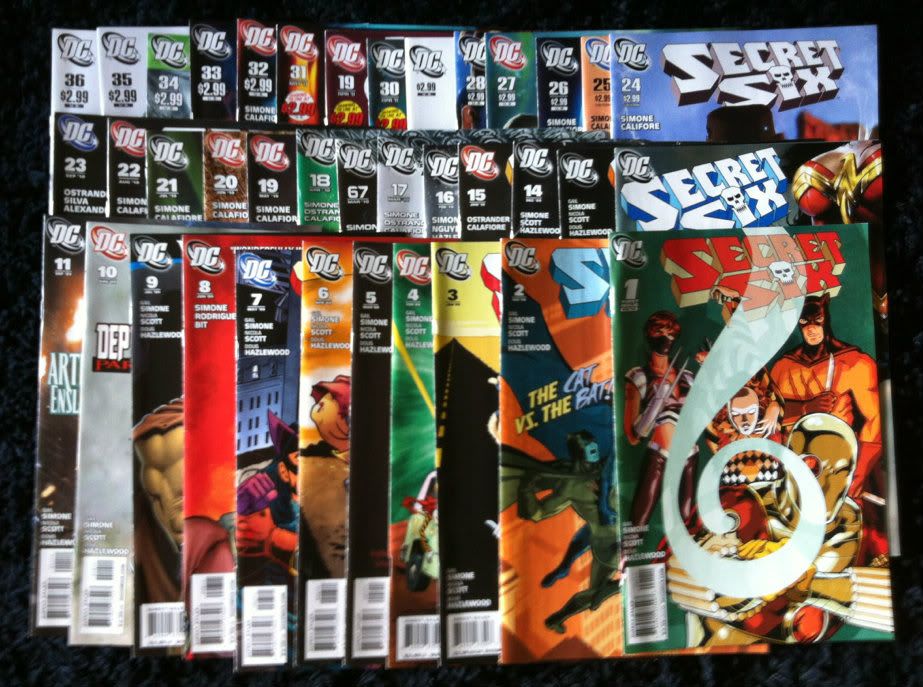
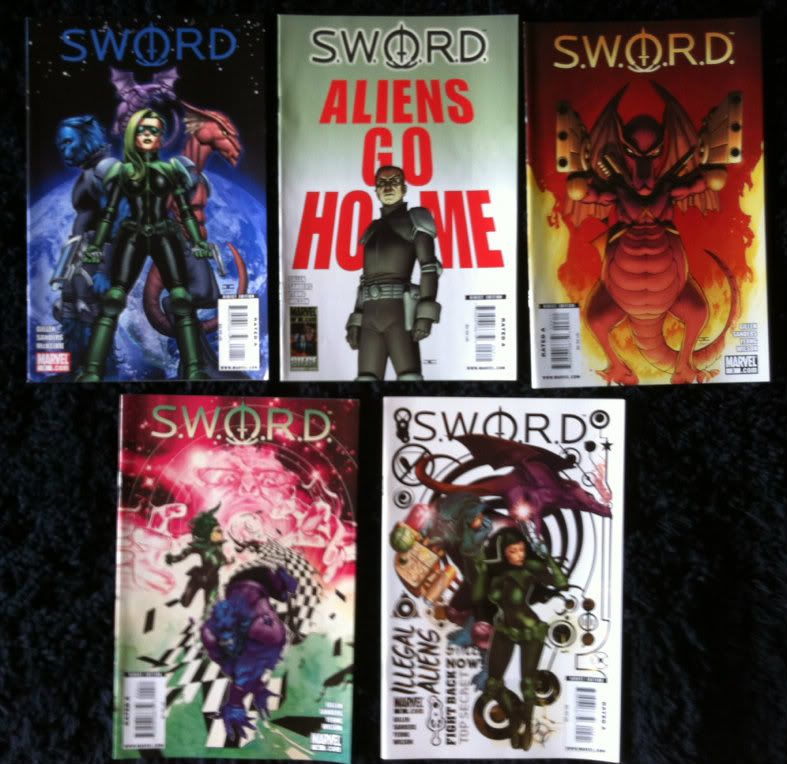
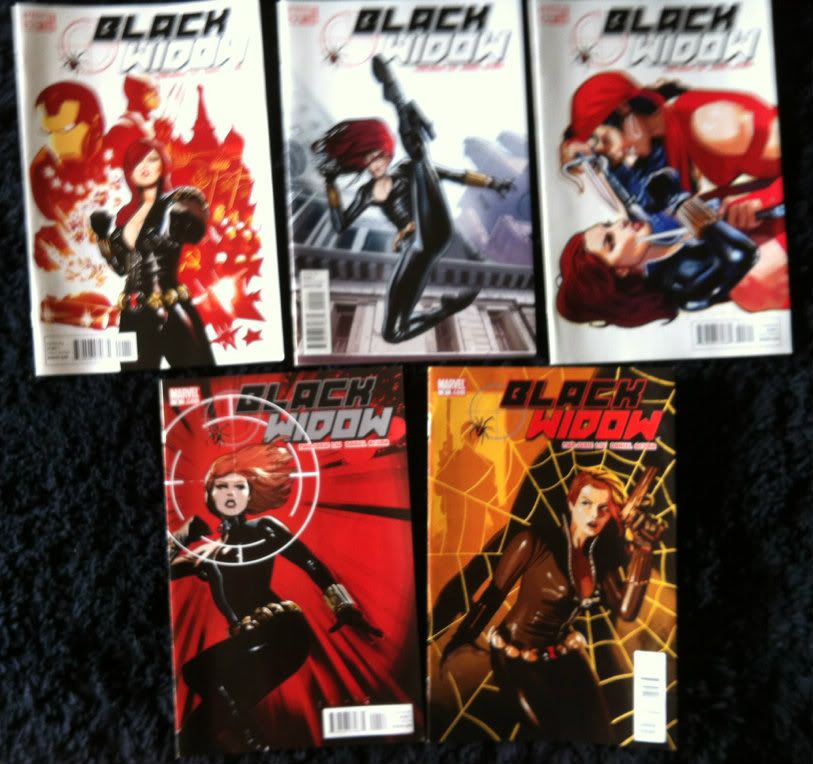
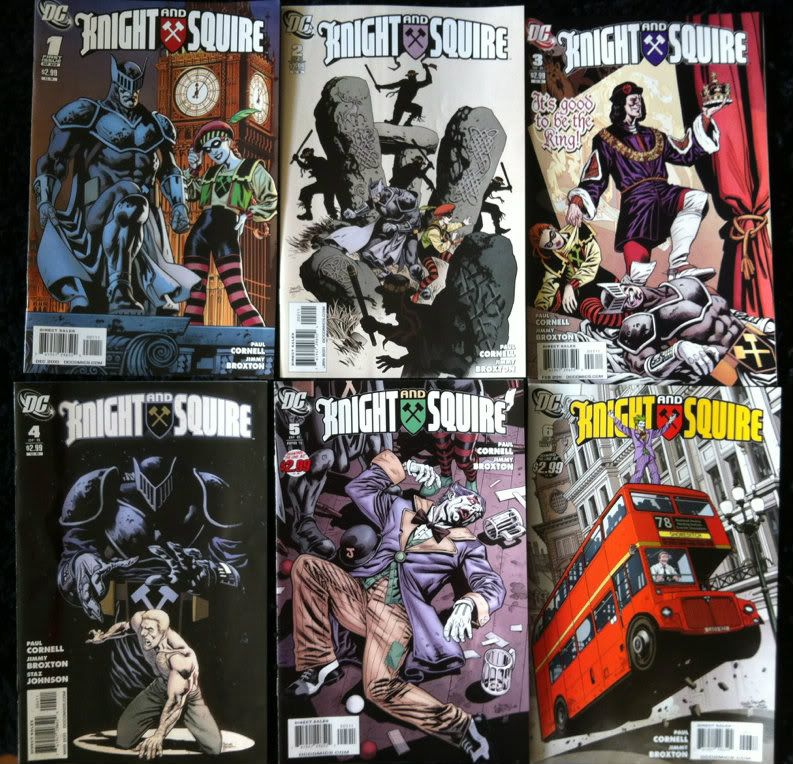
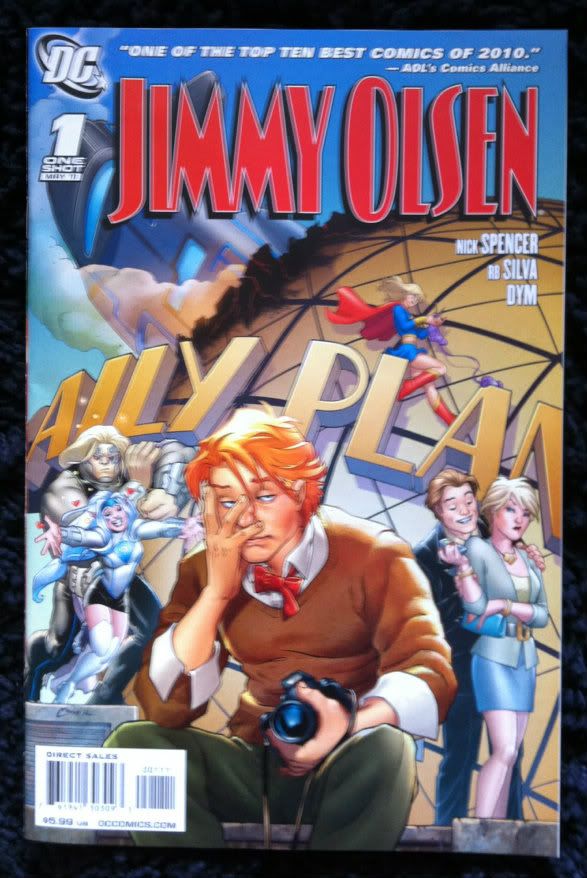
No comments:
Post a Comment